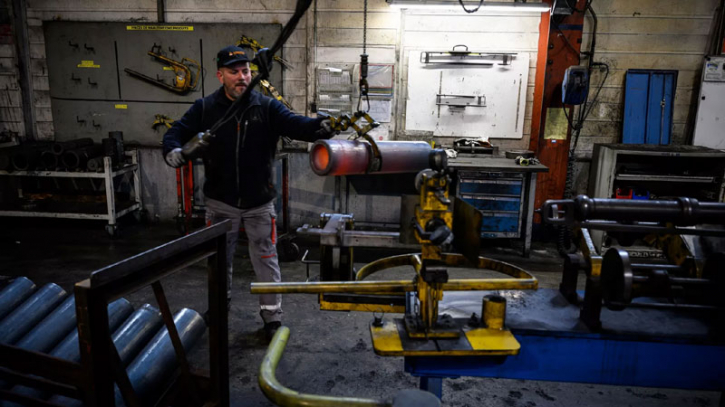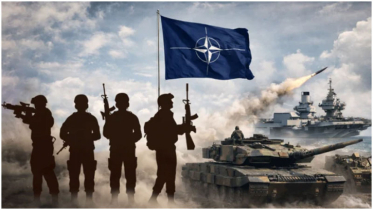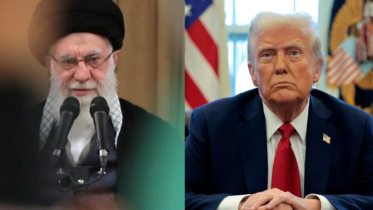Europe scrambles to mobilize 'fractured arms industry' to meet Ukraine's demands

European nations still determined to prop up Ukraine are scrambling to expand defense manufacturing to meet the voracious appetites of the Kiev regime while trying not to drain their own military capacity, The Washington Post reported.
However, “decades of disinvestment” in the wake of the Cold War is one of the reasons Europe finds itself struggling to rise up to the challenge, the outlet cited James Black, a defense and security researcher at Rand Europe, as saying.
Furthermore, there are other “systemic constraints,” such as “fractured defense manufacturing, smaller-scale markets and legal barriers to collective production.”
Over the years, lulled into complacency by the remote possibility of conflict on their doorstep, the European countries “reconfigured” their defense industries, and relied on smaller-scale regional militaries, the analyst underscored.
“Europe is now racing to relearn how to mobilize industry onto a wartime footing. But you cannot simply flip a switch,” Black said.
European leaders that jumped on the US-led bandwagon of Ukraine aid no matter the cost to themselves have been generous with strong statements of support, but have ended up in “a situation where production is far from anything resembling a war economy,” Camille Grand, former NATO assistant secretary general for defense investment, was cited as saying.
“The reality doesn’t match the words,” she added.
Another cited NATO official described Europe’s challenge as “a crisis many years in the making,” adding:
“For many allies, the question of ammunition production was deeply unsexy… Now it is at the top of everyone’s minds.”
Europe's own defense capability and Ukraine aid dominated discussions at the recent Munich Security Conference, where Ukraine’s President Volodymyr Zelensky flogged his usual beggar act and pleaded for money and weapons. The funding appeal came against the backdrop of a stinging battlefield loss for the Kiev regime, as Russian forces liberated the stronghold of Avdeyevka.
With "Ukraine fatigue" increasingly fracturing European unity, many EU national budgets have increasingly come under strain over pressure to fund NATO's proxy war with Russia in Ukraine. Amid rapidly depleting weapons stockpiles and faltering industry production, EU officials have acknowledged that they will only be able to give Ukraine half of the bloc’s earlier promised one million 155 mm rounds by the March deadline. A minimum of 200,000 shells a month is what Ukrainian officials have been demanding from their patrons, while Europe’s collective output hovers at around 50,000 a month, according to a cited Estonian analysis.
The EU pushed through a €50 billion aid package for Ukraine earlier in February. However, the US foreign aid package, which includes $60 billion for Ukraine, is currently stalled in Congress. House Speaker Mike Johnson, highly critical of the bill, saying that it failed to address US border security, pulled votes on it and announced a two-week recess until February 28.
In Munich last weekend, EU foreign policy chief Josep Borrell acknowledged that while the European Union has sufficient production capacities to supply Ukraine with ammunition, the bloc lacks funding.
Russia, which regards the Ukraine conflict as a hybrid war led by the United States, has consistently warned against continued funding and arms deliveries to Ukraine, saying that they only prolong the conflict.
.png)




